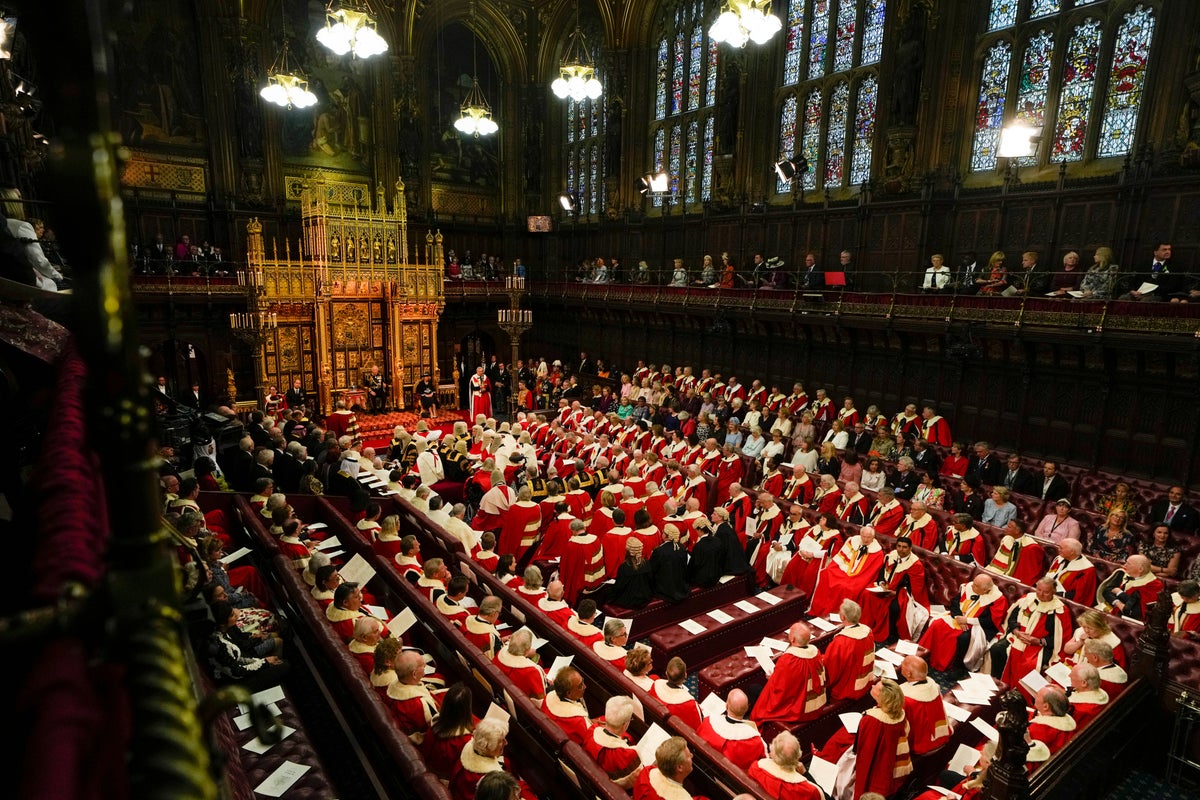
Yeomen of the guard, a diamond-studded crown and an official known as Black Rod — they're all ingredients of Britain’s State Opening of Parliament, an event where centuries-old ritual meets modern-day politics.
On Tuesday, King Charles III will sit on a gilded throne and read out the King’s Speech, a list of planned laws drawn up by the U.K.'s Conservative government and aimed at winning over voters before the country's general election next year.
The king is performing a role that his late mother, Queen Elizabeth II, fulfilled for seven decades and other British monarchs carried out before her in a tradition stretching back hundreds of years.
WHAT HAPPENS AT THE STATE OPENING?
Britain holds elections every four or five years, with the government’s term divided into Parliament sessions that are roughly a year long. Each begins with a grand State Opening ceremony, where politicians and the monarch symbolically enact the tussle between Crown and Parliament that produced Britain’s constitutional monarchy.
The day begins with scarlet-clad yeomen of the guard searching Parliament’s cellars for explosives, a reference to the 1605 Gunpowder Plot in which Roman Catholic rebels led by Guy Fawkes tried to blow up the building with the Protestant King James I inside.
Charles will then travel the mile (1.6 kilometers) from Buckingham Palace to Parliament, and a legislator will be sent to the palace as a symbolic hostage to ensure the king’s safe return.
Ever since King Charles I tried to arrest lawmakers in 1642 - and ended up deposed, tried and beheaded -- the monarch has been barred from entering the House of Commons. The opening ceremony therefore takes place in the House of Lords, Parliament’s unelected upper chamber.
A security official, the Lady (or Gentleman) Usher of the Black Rod, will be sent to the Commons to summon lawmakers, who slam the door in her face to symbolize their independence. After Black Rod - Sarah Clarke — raps three times on the door with her staff, lawmakers make their way to the House of Lords, deliberately dawdling and chatting as they go. When they finally arrive, they stand at the back of a chamber packed full of Lords in ermine-trimmed scarlet robes.
The monarch delivers a speech from a golden throne, traditionally while wearing the Robe of State and the diamond-encrusted Imperial State Crown. Last year, Charles stood in for his 96-year-old mother four months before her death and kept the crown on a cushion beside him.
WHAT’S DIFFERENT THIS YEAR?
For the first time since 1951, Parliament is being opened with a King’s Speech rather than a Queen’s Speech. Elizabeth delivered 67 speeches during her 70-year reign, missing the occasion twice when she was pregnant and when she delegated Charles to read the one in May 2022 on her behalf.
As Britain’s head of state, Charles III reigns but does not rule. Monarchs are constitutionally obliged to follow the government’s advice as they carry out ceremonial duties such as opening Parliament and appointing new prime ministers.
It was always impossible to tell whether the queen approved of the policies she announced on behalf of “my government.” Observers will be watching to see whether Charles, who freely shared his views, especially on the environment, before he took the throne – will be equally inscrutable.
WHAT WILL BE IN THE SPEECH?
This is almost certainly the last session of Parliament before a general election next year, and the speech will give clues to how the Conservatives plan to campaign.
Details released in advance suggest a strong focus on law and order. Prime Minister Rishi Sunak said the government intends to pass laws that “strengthen our society, help people feel safer in their own communities and give a sense of pride in the place they call home.”
There are likely to be tougher sentences for some offenses, and Home Secretary Suella Braverman has suggested the government could ban homeless people from sleeping in tents on city streets when those pose a nuisance.
There is likely to be legislation to enact Sunak’s plan to stop new generations from smoking by gradually raising the minimum age for buying tobacco.
Several bills will be carried over from the last session, including one to bolster protection for renters and a contentious plan to ban public bodies from imposing “politically motivated boycotts of foreign countries” – a law aimed at stopping boycotts of Israel.
The government also plans to continue the watering-down of environmental measures started by Sunak when he lifted a moratorium on North Sea oil and gas extraction in July.
It says the speech will include plans for a law requiring new oil and gas drilling licenses in the North Sea to be awarded every year. The government argues that would cut Britain’s reliance on foreign fuel and increase energy security.
Environmentalists and opposition parties say it will just make it harder for the U.K. to make a much-needed switch to renewable energy and to meet its goal of reducing U.K. greenhouse gas emissions to net zero by 2050.







